- Home
- Helen Dunmore
Counting Backwards Page 5
Counting Backwards Read online
Page 5
But never mind –
You murmur
‘We’re nearly there.’
(25 May 2017)
The Malarkey
(2012)
…the most beautiful thing on this dark earth…
SAPPHO
The Malarkey
Why did you tell them to be quiet
and sit up straight until you came back?
The malarkey would have led you to them.
You go from one parked car to another
and peer through the misted windows
before checking the registration.
Your pocket bulges. You’ve bought them sweets
but the mist is on the inside of the windows.
How many children are breathing?
The malarkey’s over in the back of the car.
The day is over outside the windows.
No street light has come on.
You fed them cockles soused in vinegar,
you took them on the machines.
You looked away just once.
You looked away just once
as you leaned on the chip-shop counter,
and forty years were gone.
You have been telling them for ever
Stop that malarkey in the back there!
Now they have gone and done it.
Is that mist, or water with breath in it?
Come Out Now
Come out now and stand beside me,
grasp the rail as the swell lifts you
above this inky, innocent city
which has put away all but the whoop of an ambulance
quickly suppressed, all but the chain of lights
slung westward across the Mendips,
all but the last cry of a drunk by the docks,
the salt taste of a locked-out tide,
the clipping hooves of a police horse.
Come out now and stand beside me.
I promise I won’t look
and won’t breathe in too deeply
the first smoke from the cigarette
you have naturally lit.
Here are only things you love.
Look to your left, where the Matthew
rears its cargo of flags,
or where masts chink in the dark
and a rat pours down a rope
from bollard to boat.
Come out now and stand beside me,
look at the swans asleep,
tell me gossip about Keats,
drink your drink and smoke your cigarette,
let me ask you all those questions
or perhaps ask nothing.
The gulls say dawn is coming
but I believe that they are wrong
and the dark goes on for ever,
so come out now and stand here
in shirtsleeves although it’s midwinter
quietly regarding water and stars.
The Inbox
It is the same electrical impulse as ever.
Look at the dates now: more than ten years
since that first empty message,
which was only your Hotmail address
blinking its way to my inbox
in slow, careful triumph
and with a touch of shyness: was this you, really,
using voice-recognition software
with such wary aplomb?
And then email after email went AWOL
and neither of us could work it out
until: Yes, this time I got your brief note
saying you had tried and tried, God knows
where the previous emails went
but now we’re in business.
You tried to access the Kremlin webcam
to catch a glimpse of me there,
emailed my daughter to say how glad you were
that you did not have to learn Swedish
in order to enjoy Shakespeare.
Sometimes the software failed. Lovelypage!
you typed, Didn’t know of it before your email
forgive brevity but my via-Voice is dumb.
I told you that crashing was all too common
and when the software worked, you wrote:
This celebrates the return
of your dictator father.
How far, how very far from that
you ever were.
Boatman
Give me that red tub like a child’s drawing
give me the catamaran
or the ferry zig-zagging
give me any or all of them
and meanwhile hold tight to my hand
for the water is wide where we stand.
The water is wide where we stand
and we are weary with waiting
but the boatman will not come.
I gave you coins to hold ready
but it must have been then
that I looked away from the water
and the boat came and went
as you held on valiantly
with your small change for Charon.
We are cold and weary with waiting.
You say there is no boatman
there was never any boatman
and I say, hold tight to my hand
for the water is wide where we stand.
I Owned a Woman Once
so glossy-fleshed, so high-coloured
my blood swept in my veins
she was rich and heaped in the belly
as the Bible says
she was fertile as the bank of a river
when the flood falls and the mud makes food,
I clothed her as I wanted to clothe her
I housed her as I wanted to house her
I put food on her plate to fatten her,
I owned a woman once so high-coloured
so dark and rich in the eyes
my blood would not be still in my veins
my eyes would not stop watching her –
a callous on her heel made my belly quiver –
I put food on her plate to fatten her
I put oil on her hair
she was fertile as the bank of a river,
I owned a woman once so high-coloured
so slow and sure in her walk
that all eyes walked with her,
I owned her from broken toenail
to breath that misted my mirror
and I clothed her as I wanted to clothe her,
her flesh hidden, her body shrouded
while she fattened with my child,
yes, mostly it was sweet to own her
but sometimes I had to punish her
for her eyes everywhere looking
for all the moist folds of her body hidden
and the rich darkness of her eyes looking.
Soon it came to her time
and this woman I owed lay on the ground
in the room I kept for her
with the midwife I paid for her
but her belly would not release the child
and the cage of her hips would not let go the child.
The midwife said she came to it too young
maybe, this woman I owned
but believe me
she was straight out of the Bible
so glossy-fleshed, so high-coloured
so heaped and rich in the belly
with one bare callous on her heel.
Longman English Series
When I should be working
on one of those afternoons
where the lights come on early
and rain spatters the windows
I take down an anthology
with a design of blue snowflakes
over the purple ground –
Longman English Series, Poetry
1900 to 1965
published (cased) in 1967.
T.S. Eliot looks desperate
in front of a BBC microphone
the size of a parking meter
and Thom Gunn’s as glamorous
/>
as his own sad captains.
In the margins, my husband’s
young unreadable handwriting –
out of it springs a line,
a pulse of thought
he had years before we met.
In Notes, Lawrence is mildly taken to task
for the way his repetitions can degenerate,
though warmly praised for ‘Gentians’.
I remember the teacher’s voice
as we dug our heels into the flanks
of Sons and Lovers, on the home straight
or so we thought,
Does anyone know what he’s on about?
Helen? But in Longman’s Elysian
field the poems only answer
and the poets only ask.
Writ in Water
They make him a plaster saint of poetry, with his eyes turned up to heaven. But it wasn’t like that.
Winter. Rome at last. The terrible voyage from England was done. We’d found lodgings and a doctor. All he had to do was to get well.
By day the noise of the fountain was almost hidden. There were women selling chickens and fresh milk, children playing, pails clattering, the creak of wheels and the clop of horses’ hooves. We used to count the different sounds, and he always won. But at night the fountain played clearly. Bernini’s fountain, with its fantastic coils of marble and gushing water.
‘Our Roman water is pure, not like the filthy water in Napoli,’ said our landlady, with a toss of her head. Signora Angeletti was slippery with the truth, but she was right about the water. I made sure there was always a full pitcher by his bed. Fever made him thirsty.
They’ve burned everything in our lodgings. The table we ate off, the bed he lay in. Even the shutters that I swung open at dawn so that he could gaze down the steps to the piazza and the life of a new day. They stripped our rooms. It’s the law here. The Roman authorities are terrified of consumption.
‘Please move aside, Signor Severn. We have our duty to perform.’
But the ceiling remains, the one he lay under. They couldn’t take away those flowers he gazed at every day until he died. Sometimes he thought he was already in his grave, with flowers growing over him. He dreamed of water bubbling out of the earth, and violets in damp, sweet grass.
‘You should be painting, Severn. Why are you not painting?’
When we first came, when he was strong enough, he would sit in the winter sun and watch the artists in the piazza.
‘You have more talent than any of them, Severn.’
I still have this little sketch of him: see. There were others but they’ve been lost. Maybe someone has taken them, I don’t know.
When you draw something, you never forget it. It was night, and there was one candle burning. That was enough light to draw by. It was a still, mild night, even though it was only February. But Spring comes early in Rome. It was the last night of his life.
The flame of the candle barely moved. The fountain was loud. He was asleep, cast up on the pillow like a shipwrecked man. His hair was stuck to his forehead with sweat.
I shall never forget that night. He’d tried to prepare me. Warn me.
‘Have you ever seen anyone die, Severn? I have. I nursed my brother Tom.’
Sometimes, after a fit of coughing, he would lie so still that I thought he was already dead.
‘I must warn you, Severn, if you persist in nursing me you’ll see nothing of Rome but a sickbed and a sick man. Believe me, it’s better to give me the laudanum.’
There was a full bottle of laudanum. I gave it to him drop by drop, as Doctor Clarke ordered.
‘Give me all of it, Severn. You don’t understand what it is to die as I am going to die.’
But how could I allow him to destroy his immortal soul? I did not trust myself. I gave the laudanum to Dr Clarke, for fear I’d weaken.
He asked me to go the cemetery. He wanted me to describe the place where he was to lie. I told him about the goats cropping the grass, the young shepherd guarding his flock, the daisies and violets that grew so thickly over the graves.
‘It’s very quiet,’ I told him. ‘You can hear the breeze blowing through the grass. There’s a pyramid which marks an ancient tomb.’
He lay back and closed his eyes. After a while he asked me whose tomb it was.
‘I enquired,’ I told him. ‘His name was Caius Cestius, and he was a great man of the first century.’
‘A great man… A very rich man at least, my dear Severn, if he had a pyramid built for his tomb. Is it large?’
‘Large enough.’
‘Does it cast a shadow?’
‘I suppose so.’
His cough caught at him. I propped him with pillows.
‘You should not talk,’ I told him. He moved his head from side to side, restlessly. Then he said,
‘You must understand that I will not regain my health now, Severn. I have studied enough anatomy to know that.’
We lived in our own world all those weeks. The next cup of broth, the next visit from Dr Clarke, the beating-up of pillows, the lighting of fires and measuring of medicines. Some days I hadn’t a moment to call my own. Some nights I did not undress.
I was glad of it. He lay with the marble egg given to him by Miss Brawne in his hand. Women keep such an egg by them when they sew, to cool their fingers. He held that marble hour after hour, day after day. It soothed him as nothing else did. He wanted to know why he was still living, when everything was finished for him. This posthumous life, he called it.
He was sorry after he said it.
‘My poor Severn, you have enough to do without listening to my misery.’
We had a piano carried upstairs so that I could play for him. He loved Haydn.
‘Don’t you hear that they are the same, Severn: the piano, and the fountain? Listen. But what am I thinking of? You cannot listen to yourself play, any more than a blackbird can hear itself sing.’
I was there as the days wore him down. His other friends, Dilke and Brown and Reynolds and the rest, they were far away in England. Now we fight over his memory like cats. But it was to me that he spoke. I wiped the sweat off his face and washed him and changed his linen. I told him about the sheep that roamed over the graves. He smiled. He never tired of the sheep, the goats, the shepherd boy and the violets. The next day he would ask again, as if he’d already forgotten.
But I don’t think he forgot. Words were like notes of music to him. He liked to hear how they fell.
‘Sometimes I think I am already buried, with flowers growing over me,’ he said, as he stared up at the ceiling where the painted flowers swarmed.
Signora Angeletti became suspicious. She waylaid the doctor, asking what was wrong. Was it consumption?
‘I am a charitable woman, but I must think of my other lodgers.’
I didn’t know the laws of Rome then. She feared that they would strip her rooms and burn everything. I suppose she was right, but she was compensated. She lost nothing.
I heard the patter of Signora Angeletti’s voice from the mezzanine. We were in her hands. No other boarding-house would take us now: he was too obviously ill.
He understood Signora Angeletti very well. She gave us a bad dinner, not long after we came, and he threw it straight out of the window onto the Steps. A crowd of urchins came from nowhere and scrabbled for it.
‘She won’t serve us such stuff again,’ he said, and he was right. She had given us rubbish, to see if we were willing to swallow it. I wished I had his firmness. I was nervous with Signora Angeletti, and she knew it. In those ways he was more worldly than I was.
Yes, they make him a plaster saint of poetry, with his eyes turned up to heaven. They fight over his memory, shaping it this way and that. But I remember how he rocked with laughter when that dinner splattered on the marble steps!
‘My best plate!’ screamed Signora Angeletti. But he said,
‘If that plate is the best you have, Signora, then I am very sorry f
or you.’
After that the dinners were always hot and good.
I’ve told the story of those months so many times that they hardly seem to belong to me. If I say that they were the high point of my life, you will misunderstand me. You may even accuse me of cruelty. A man lay dying, and I say it was the high point of my existence? How can I recall those months of agony and dwindling hope, except with a shudder?
I remember the nights chiefly. We set the candles so that as one died, the next one would light from its burning thread. Once he said that there was a fairy lamplighter in the room. The flame would burn down until it seemed about to collapse on itself. He watched intently all the while. When the next sprang up and began to bloom, he would allow himself to close his eyes.
When I was very tired the room seemed to sway and the noise of the fountain reminded me of our voyage from England. Sometimes I fell asleep for a few seconds and really believed that I felt the motion of the ship under me.
I remember one incident which I have never written down, or spoken of even. I was in the small room which was intended for my studio. I thought of his words.
‘You should be painting, Severn! Here you are in Rome and you do not paint at all.’
I was standing at the table, going through my sketchbook. It contained a few studies which I hoped might be worth further work. I had sketched the cemetery for him. The pyramid of Caius Cestius, with the young shepherd sitting on the grass. But I had never shown him the sketch. How can a man say to another:
‘Look, here is the place where you will be buried. Just there, where that shepherd sits and dreams.’

 The Ingo Chronicles: Stormswept
The Ingo Chronicles: Stormswept The Deep
The Deep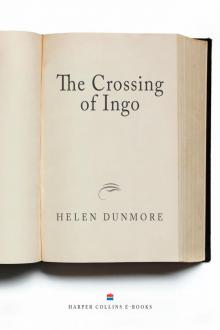 The Crossing of Ingo
The Crossing of Ingo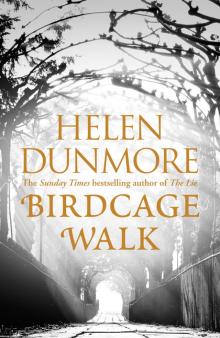 Birdcage Walk
Birdcage Walk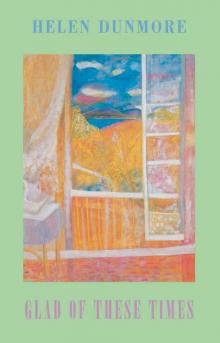 Glad of These Times
Glad of These Times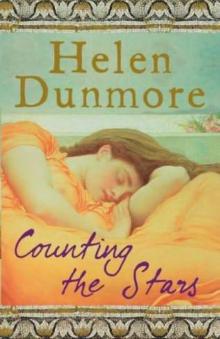 Counting the Stars
Counting the Stars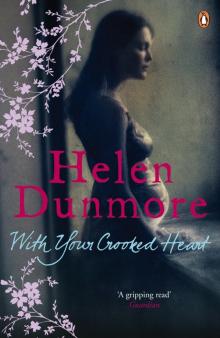 With Your Crooked Heart
With Your Crooked Heart Burning Bright
Burning Bright House of Orphans
House of Orphans Mourning Ruby
Mourning Ruby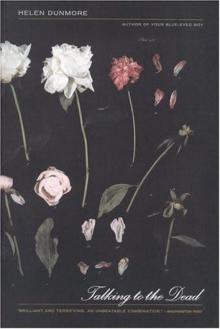 Talking to the Dead
Talking to the Dead Exposure
Exposure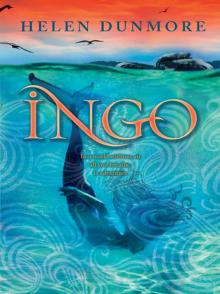 Ingo
Ingo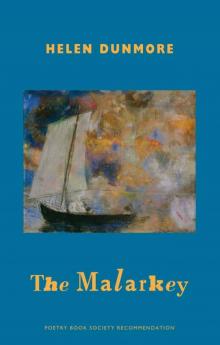 The Malarkey
The Malarkey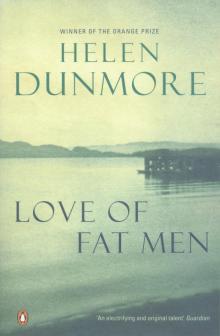 Love of Fat Men
Love of Fat Men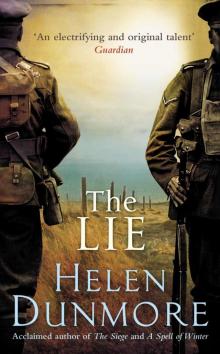 The Lie
The Lie The Siege
The Siege Inside the Wave
Inside the Wave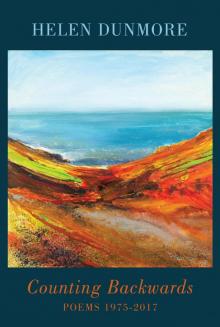 Counting Backwards
Counting Backwards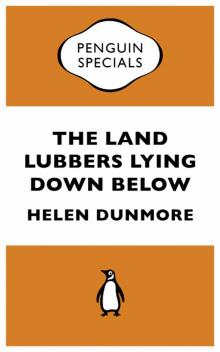 The Land Lubbers Lying Down Below (Penguin Specials)
The Land Lubbers Lying Down Below (Penguin Specials)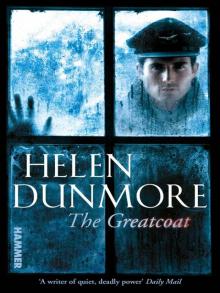 The Greatcoat
The Greatcoat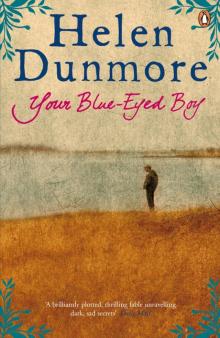 Your Blue Eyed Boy
Your Blue Eyed Boy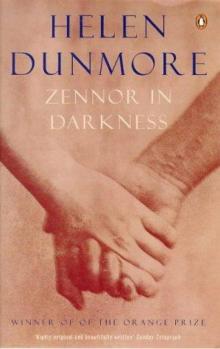 Zennor in Darkness
Zennor in Darkness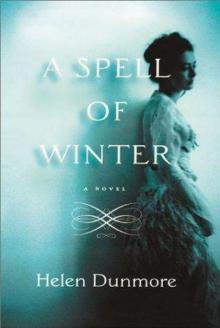 Spell of Winter
Spell of Winter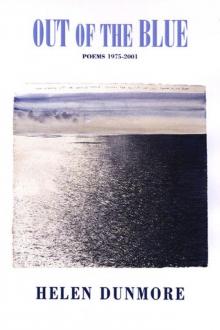 Out of the Blue: Poems 1975-2001
Out of the Blue: Poems 1975-2001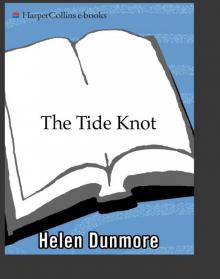 Tide Knot
Tide Knot The Betrayal
The Betrayal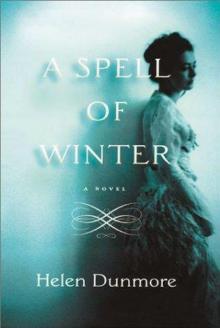 A Spell of Winter
A Spell of Winter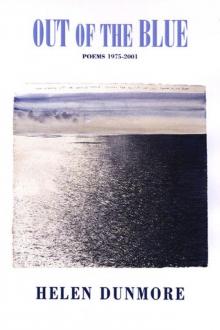 Out of the Blue
Out of the Blue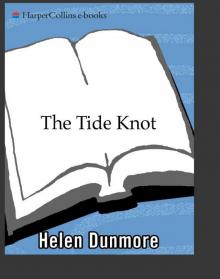 The Tide Knot
The Tide Knot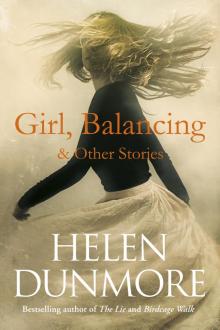 Girl, Balancing & Other Stories
Girl, Balancing & Other Stories Betrayal
Betrayal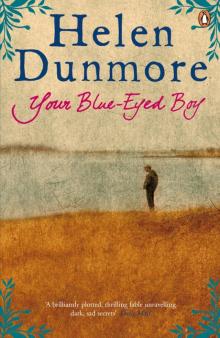 Your Blue-Eyed Boy
Your Blue-Eyed Boy